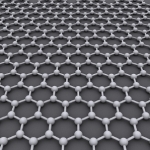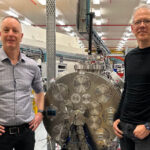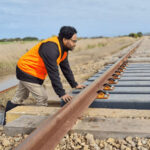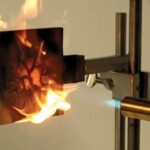Oh graphene, you wonderful, miracle substance. The one atom-thick latticed carbon material has been proposed as a way of revolutionizing everything from upload speeds to sports equipment. And if we could find a way to implant the stuff, well, clearly we’d all become an unstoppable army of Robocops – or at the very least, we’d get better at monitoring our insides and delivering drugs to the right spots.
Bionics have long been toward the top of the list of potential life-changing graphene applications, but actually getting the substance to play nice with our sensitive human tissue is another issue entirely. The primary problem is heat. Delivering power to the rigid material causes it to get hot, frying the surrounding soft tissue in the process.
In a recent simulation by teams from MIT and Bejing’s Tsinghua University, however, scientists believe they’ve hit upon a solution: water. A thin wall of the stuff separating graphene from tissue could save surrounding cells from a deep fried death.
They call it the “sandwich” model – a water sandwich, with graphene and human cells serving as the bread. Just like grandma used to make.
Here’s MIT scientist Zhao Qin, “In the body, water is everywhere, and the outer surface of membranes will always like to interact with water, so you cannot totally remove it. So we came up with a sandwich model for graphene, water, and membrane, that is a crystal clear system for seeing the thermal conductance between these two materials.”
Varying the thickness of the water could serve to dissipate the heat at different rates. In some cases – as with cancer cells – fried cells may be a good thing. That variation could be controlled based on the construct of the graphene itself, with different configurations attracting more water molecules.












